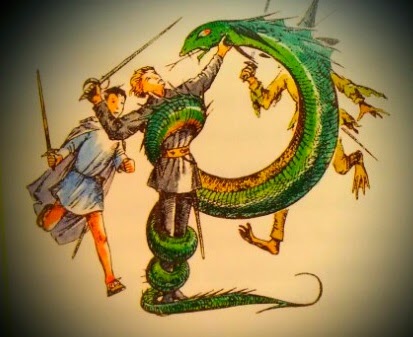Good Friday Prayer
Oh Christ, You are the Lamb of God Who takes away the sin of the world.
You were sent from
Heaven through a virgin womb to be our manna in a barren desert.
You, Who were anointed with burial oil at Your birth and again at
Holy Week when You walked through Jerusalem smelling of a spiced tomb.
By the sweat of Your
brow you labored to feed Your bride the bread of Your own flesh, great drops as
of blood falling to the ground, crying out to God, not for vengeance, but mercy
- Father, forgive them.
At the sound of Your coming judgment You did not hide, but welcomed those who sought You with torches and weapons. You were driven out of the garden by their fiery swords. And on that day, You surely died for us.
You became shamefully naked and were found in the middle of the
trees.
But by Your death, we were clothed from on high.
Now men may once again walk with their Lord in Paradise, as You promised the thief at Your side.
You took our place on the altar, as the ram whose horns were caught in
the briars. You took our curse upon Your head with a crown of thistles and thorns of iron pierced Your hands and
feet.
On the wooden cross, that sharp iron was redeemed as if to float in the flowing streams and we who were lost and sinking deep were drawn out and returned to You.
By Your cross our bitter waters have been made sweet.
You were suspended in midair, between Heaven and
Earth, our bridge; the Mediator between God and men.
Blood and water flowed from the rock of Your split side and from the cursed
labor pain of Your belly, the Church was born of water and blood; Your Bride from Your rib.
Our first father Adam failed to look after the woman You gave him, but You
remembered Mary and made provision for her even as You died on that tree, where
the centurion's eyes were opened to understand good and evil.
You were lifted up
like Moses’ brass serpent, so that he and every fatal sinner might look to You and
be healed. And it is by Your blood in the sign of the cross on
our door frames, that our judgment passes over us.
Like Moses between Aaron and Hur on the hilltop and like Samson between the pillars, You stretched Your arms wide to sacrifice Yourself and deliver God's people, gaining us the victory.
At Golgotha, You
tread upon the skull of death and under Your pierced heel the head of the
serpent was crushed.
Precious Jesus, You have made the Cross to be our Tree of Life,
blooming with the fruit of Your own body, which by glad faith, we take, eat,
and live.
You have made every day Good Friday, for every day we live in the blessed joy of Your bitter Passion and death, the remedy of our sin.
So we join our hearts and voices in the angel song:
Worthy is the Lamb Who was slain, to receive power and riches and
wisdom and strength and honor and glory and praise, now and forevermore.
Amen.















